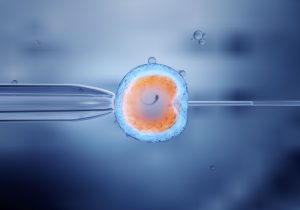In today’s world, there is no one way to start a family. The amount of options are almost endless – adoption, foster, surrogacy, artificial insemination, in vitro fertilization, and the list goes on. However, as artificial reproductive technology advances, it brings up new problems for couples who are going through a divorce. For example, one couple from San Francisco decided to create embryos after the wife’s breast cancer diagnosis. The couple feared that the treatment would leave the wife unable to have children. The couple created and froze five embryos that were to be used to have children, if the couple so decided. A few years later, the couple decided to divorce. One big question remained: what happens to the embryos?
Courts are being forced to address the issue with the growing popularity of freezing embryos, often a result of illness or for couples wanting to wait to have children, but not wanting to eliminate their chances. Another example is an Arizona couple, who created the embryos after the wife was diagnosed with cancer. The ex-husband in this case did not want to be forced to become a father with his ex-wife, as he would still be legally obligated to pay child support. In this particular case, the Arizona court ruled that the embryos be discarded, effectively barring the ex-wife from using the embryos without the father’s consent.
Virginia courts have also been faced with these decisions. In its two rulings on cases of this type, it used a “balancing interests approach.” This approach involved the Court looking at factors such as the positions of the parties, the significance of their interests, and the relative burdens that will be imposed by differing resolutions. In other words, the parties told the Court why they wanted a specific outcome and what the effect would be on the respective parties and their families. By using this test, Virginia employs a very fact-specific approach to reproductive technology and its status upon divorce or separation, and does not rule out allowing an ex-spouse to use the embryos.
As stated previously, there is no one way to start a family. If you are considering an option similar to above, or are concerned about what will happen if you and your partner separate, please don’t hesitate to contact one of our experienced Virginia family lawyers for a one-on-one consultation at (804) 423-1382 or info@wmmlegal.com.
Patel v. Patel, 99 Va. Cir. 11 (2017).
